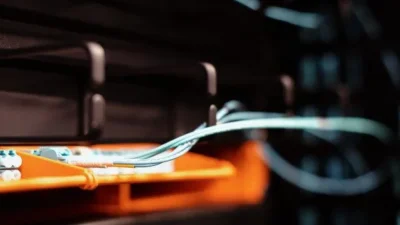Businesses are increasingly adopting Internet of Things (IoT) technologies, even if some don’t yet truly understand the benefits they can bring to their company, according to a survey by Strategy Analytics.
More than two-thirds of companies (70%) of companies are now using or planning to use the Internet of Things (IoT) in some capacity, a significant increase from the 32% recorded in last year’s study, according to analyst house Strategy Analytics, which recently polled over 350 global businesses from 23 vertical markets for its "IoT 2016 Deployment Trends and Usage" survey.
Big Data analytics is the primary driver propelling these deployments, according to 56% of respondents, while the top IoT services deployed to date are for office security/surveillance, smart building controls, financial and healthcare analytics.
Despite this, 51% of adopting companies admitted they aren’t sure whether the new technology is paying off yet. Strategy Analytics director of IoT systems research and consulting, Laura DiDio, explained that this means companies don’t yet know if the project is saving them money or improving their business.
Strategy Analytics further indicates that 80% use or plan to deploy IoT within next 3 to 12 months; only 25% have full-scale end-to-end deployment.
This suggests that like some of the companies don’t know why they’re engaging with these technologies, or may be falling back on age-old industry values when rolling out such plans.
IoT data problems
A clear and concise business strategy around the Internet of Things isn’t the only problem, with Strategy Analytics also highlighting the issues around legacy system integration and information security.
"Integration with legacy systems (41%) and security are the biggest impediment to IoT deployments. Only 13% of respondents said that IoT will strengthen security and 56% said security is their top technical challenge," DiDio said. "Another concern is that nearly half of businesses have not completed a detailed cost analysis which is crucial," she added."
There’s also the issue of making sense of the data, something which highlights a shortage of skilled staff (mainly data scientists) and deploying adequate technology solutions.
"While data analytics emerged as the top reason for an IoT deployment, a significant percentage of companies struggle with how to analyze that data to benefit their business," said Andrew Brown, Strategy Analytics executive director of enterprise and IoT research.
Brown added, "The data deluge is problematic; over 50% report that they have too much data to be able to analyze it efficiently. We also found that 44% of respondents currently perform some data analytics but admit they could do a better job and 31% of organizations do not currently store IoT data at all."
The report concludes that while IoT adoption will continue to surge, users will need to engage vendors, systems integrators and third-party consultants to provide training, deployment and ongoing maintenance to realize this concept’s full technical potential, cost savings and drive top line revenue.
IoT market still at an early stage
This report comes weeks after Vodafone’s fourth annual IoT barometer indicated IoT budgets are on the rise. The report revealed that 89% of companies (of over 1,000 polled across Europe) are investing in IoT and have increased their budgets in this area over the last 12 months.
Just over three-quarters of all companies believed that taking advantage of IoT technologies will be critical for the future success of any organization. Crucially, 63% of IoT adopters in the report already claimed to have seen "significant" returns on their investment, a small rise from 59% the year before.
The report also offers a different perspective of IT budgets. Whereas Strategy Analytics hints at IoT and data analytics falling under a single, combined segment of the IT budget, Vodafone’s report appeared to suggest that Internet of Things investment is standalone.
The firm indicated that it now accounts for 24% of the average IT budget, putting it roughly on par with cloud computing and data analytics. Analys Mason research director Tom Rebecck painted a picture of a nascent market where return on investment (ROI) is still unclear for vendors and end users.
"IoT today is still at a very early stage. Where we have numbers on IoT revenues, they are typically low, but growing quickly," Rebecck said. "But, if we think of the long-term vision of IoT-areas like smart cities, smart agriculture, driverless cars-to realize the full potential there are lots of challenges that need to be overcome on aspects such as standards, data ownership, privacy, security, data formats, micro-payments for data, business models and so on. They will take many years to resolve. I think firms understand the potential benefits of IoT but are struggling with how to resolve these problems."
Doug Drinkwater is editor at Internet of Business, which is hosting the Internet of Manufacturing Conference November 1-2, 2016, in Chicago. This article originally appeared here. Internet of Business is a CFE Media content partner. Edited by Chris Vavra, CFE Media, [email protected].
ONLINE extra
Control Engineering did a study on Industrie 4.0 and the IIoT and found six high-level findings on their attributes and how familiar users are with the technology and the concepts. Learn more about the study’s findings here.
See additional stories about the Internet of Things (IoT) linked below.


